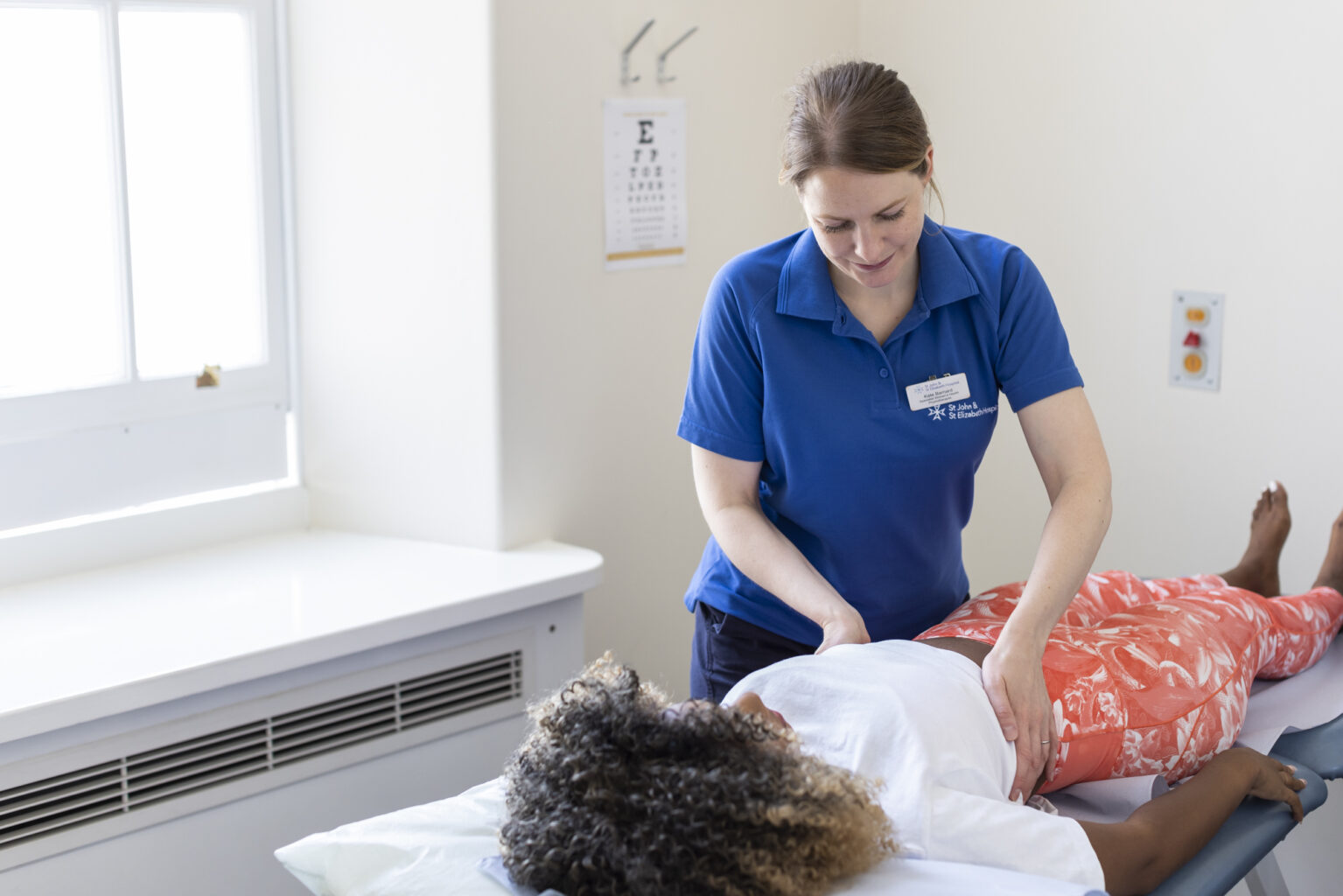Contact number: 020 7806 4010
Everything you need to know
Respiratory physiotherapy can help maintain or improve your lung function. Whether you have a chronic condition or are recovering from an illness/ injury, respiratory physiotherapy can help maximise your recovery and improve your breathing.
Conditions treated include:
- Bronchiectasis
- Asthma
- COPD
- Persistent / Chronic Cough
- Recurrent Chest infections
- Breathing Pattern Disorders – Dysfunctional / Altered/ Disordered Breathing
- Breathlessness
- Respiratory compromise following general surgery or severe illness
Most people will be referred to a respiratory physiotherapist by a Consultant / GP or be self-referred if they present with any of the following symptoms:
- Difficulty in breathing on exertion or at rest along with associated symptoms like breathlessness
- Newly diagnosed respiratory conditions / chronic respiratory conditions
- Difficulty clearing airway secretions
- Limited knowledge to management long term respiratory conditions
- Decreased exercise tolerance
- Persistent cough
Before therapy
At your first appointment your Specialist Respiratory Physiotherapist will ask about your main respiratory concerns their impact on your quality of life. This will be followed by a systematic assessment including the onset, frequency and duration of your symptoms; your past medical history; medication history; results from investigations; lifestyle questioning regarding Sleep, Diet, Exercise duration and frequency. This session may include completion of questionnaires to further aid your assessment and evaluation process and will be concluded with a physical assessment.
Your initial Assessment session will aid the planning of your goals and formulation of your treatment plan.
During therapy
There are many respiratory physiotherapy techniques you will be offered:
- Assessment of breathing when exercising and specialist advice to optimise breathing patterns, including initiation of inspiratory muscle training
- Specialist, evidence based advice to enhance self-management of long term respiratory conditions
- Breathing retraining utilising the Bradcliff Breathing Method
- Airway clearance techniques such as Active Cycle of Breathing; Specialised prescription of devices to aid secretion clearance; manual techniques
You will have follow up sessions in order to monitor your progress reviewing your symptom presentation, along with continued reassessment of your respiratory system or breathing pattern. There will also be a review of techniques taught and your understanding of your condition.
After therapy
Typically the frequency of your sessions will become less regular as your symptoms improve or until your goals are achieved or main concerns have been addressed. During this time you should continue with the techniques / programme or advice provided to you. Ideally the more engaged you are in your therapy, the more you should improve. If you are struggling with any part of your programme, please inform /contact your physiotherapist.
How to pay for your treatment
If you’re… paying for yourself
Did you know you don’t need private medical insurance to come to St John & St Elizabeth Hospital? As a self-pay patient, you can access safe, outstanding quality health care at times to suit you.
For scans and tests, as well as to see most consultants, you’ll still need to be referred by a medical professional like your GP, but as a self-pay patient, the process is more straightforward. You won’t need authorisation from an insurance provider, and you’ll have greater choice of therapist and appointment times.
If you’re… insured
St John & St Elizabeth Hospital is approved by all major medical insurance companies. If you have a personal private health insurance policy, or your company provide it for you, you can use it to pay for your care from your initial consultation through to treatment, surgery and aftercare such as physiotherapy. Not all private health insurance plans cover the same things. It’s very important to check exactly what you are covered for with your insurance provider.
First appointment
Depending on your situation (whether you’ve just had surgery, are self-referring, or have been referred by your doctor), you may have your first appointment in our therapies department, or whilst you’re staying on one of your wards. During your first appointment, your therapist will take a thorough medical history and conduct a physical exam.
Treatment plan
Your therapist will create a tailored treatment plan, which could include lifestyle advice, an exercise programme, and massage, amongst other things. You’ll practice the recommended exercises together during each of your sessions. Once you’ve gone home, you will need to follow your therapist’s guidance and practice the exercises consistently.
Follow-ups
You may only need one appointment. However, a series of sessions could be recommended. If this is the case, your first few sessions may be scheduled closer together (for example every week or fortnightly) so your therapist can see how you’re getting on with the exercises and modify your treatment plan as necessary. Your individual circumstances and the progress you make will inform how many sessions you will need in total.

